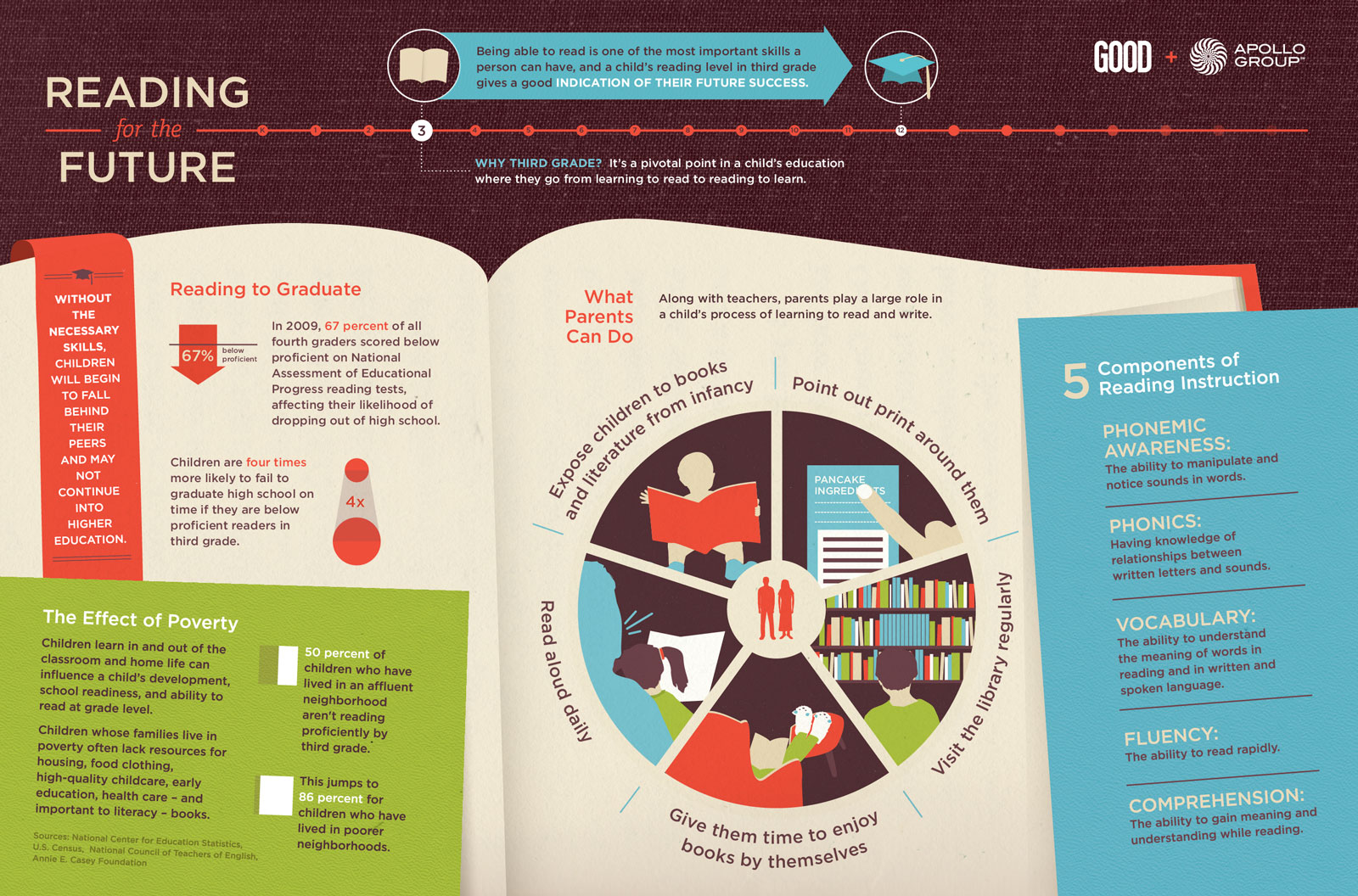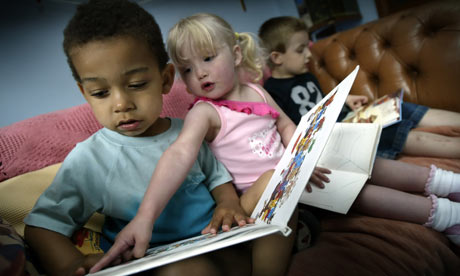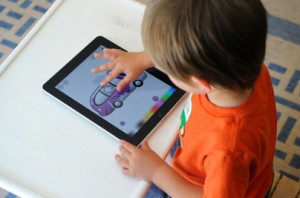
Children learn to read through consistent exposure to various kinds of literature, as well as by engaging in different types of reading strategies like those outlined above. Image source: infographicsmania.com
Reading is a critical component of communication, and age 7 seems to be the magical turning point by which most children learn to read. Children who struggle up until this point – and those who still aren’t reading beyond 7 years of age, don’t necessarily have disabilities that are preventing them from acquiring literacy skills. However, it is valuable for parents to acknowledge the typical milestones for literacy and recognize the warning signs that something more serious than just a delay is preventing their children from reaching reading milestones. If you find yourself asking: How do I teach my child to read?, these following strategies are might give your child the support and extra attention to literacy that is needed. Continue reading


